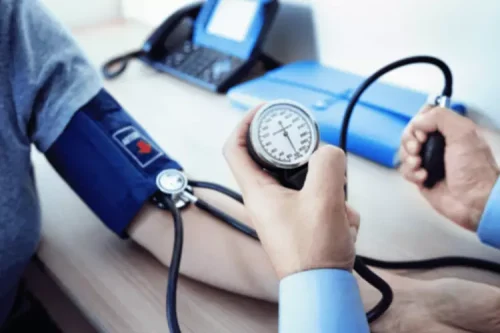
Healthcare providers may prescribe high-dose ibuprofen—called IBU—for juvenile rheumatoid arthritis, osteoarthritis, and menstrual cramps. Ibuprofen belongs to a family of drugs called nonsteroidal anti-inflammatory drugs (NSAIDs). These drugs block inflammation at the source by preventing the production of substances called prostaglandins, the chemicals responsible for swelling. NSAIDs like ibuprofen are very effective but can have unwanted side effects and drug interactions. Knowing what to expect can help keep problems at arms-length.
Accessible medication containers and labels
- Generic drugs are thought to be as safe and effective as the brand-name drug they’re based on.
- No surprise, then, that gastrointestinal complaints are common with ibuprofen.
- The incidence has not been determined, but those most at risk include people with existing kidney disease, older patients, and anyone taking other drugs that can poison the kidneys.
- Do not take more or less of it or take it more often than directed by the package label or prescribed by your doctor.
- Do not take ibuprofen right before or after a heart surgery called coronary artery bypass graft (CABG).
Acetaminophen and ibuprofen have some different side effects. For example, ibuprofen is more likely to irritate your stomach. Your doctor will recommend can you get addicted to ibuprofen the dosage of ibuprofen that’s right for you. Below are commonly used dosages, but always take the dosage your doctor prescribes or recommends.

Medications & Supplements
This means that in some cases, your doctor may prefer one drug or may recommend taking both drugs together. Ibuprofen is a generic drug, which means it’s an exact copy of the active drug in a brand-name medication. The brand-name medication that ibuprofen is based on is called Advil. If you have questions about side effects, call your doctor.
Interstitial Cystitis (IC) and Painful Bladder Syndrome (PBS)
- Talk to your doctor if the headaches last longer than a week or are severe.
- Like every medication, ibuprofen has its side effects too.
- It is essential to take the correct dosage to minimize the risk of side effects.
- Ibuprofen and other NSAIDs should not be taken immediately before or after coronary artery bypass graft (CABG) surgery.
A person should always follow the doctor’s instructions and read the information on the packaging carefully before using this or any other medication. Children can take pediatric ibuprofen to relieve pain and fever. Experts do not generally consider ibuprofen to be a medication that will lead to substance use disorder, although at least one case study suggests this is possible. A person should consult a doctor or qualified pharmacist if they are unsure about whether to use ibuprofen. Some medications, such as decongestants, have ibuprofen added to create, for example, a combined cold or flu remedy.
Generally, the symptoms observed with an overdose of ibuprofen are similar to the symptoms caused by overdoses of other NSAIDs. Ibuprofen is a common over-the-counter pain reliever and fever reducer that is safe for most adults, children, and infants to use for mild to moderate pain or fever. Widely available as a generic, ibuprofen is also instantly recognizable under the brand names Advil and Motrin.
- Ibuprofen may be taken with food or milk to prevent stomach upset.
- Side effects can arise within the first weeks of using this drug.
- People who are allergic to any of the following should not use ibuprofen products.
- If you’ve had an allergic reaction to ibuprofen or any of its ingredients, your doctor will likely not prescribe ibuprofen.
- It is also used for treating menstrual cramps (dysmenorrhea), osteoarthritis, rheumatoid arthritis, and juvenile idiopathic arthritis.
Neck Pain: Causes of Stiffness, Muscle Spasms, Treatment, and Relief

The table below includes the recommended ibuprofen dosages based on the condition you’re using it for. Your doctor will prescribe the dosage that’s right for you based on how severe your symptoms are. Ibuprofen may also cause stomach or intestinal bleeding, which can be fatal.
Common Childhood Skin Disorders
If a person takes ibuprofen by mouth, they should notice the effects after 20–30 minutes. Use ibuprofen exactly as directed on the label, or as prescribed by your doctor. Use the lowest dose that is effective in treating your condition. Do not give ibuprofen to a child younger than 6 months old without the advice of a doctor. Ibuprofen is used in adults and children who are at least 6 months old. This document does not contain all possible side effects and others may occur.

If OVERDOSE is suspected:
Costs of prescription drugs can vary depending on many factors. These factors include what your insurance plan covers and which pharmacy you use. Ibuprofen belongs to a group of drugs called non-steroidal anti-inflammatory drugs (NSAIDs). These drugs block the creation of prostaglandins, which are hormone-like substances that your body naturally makes.

Low Blood Pressure (Hypotension)

To lessen stomach upset, you may take this medicine with food or milk . When used for severe or continuing arthritis, this medicine must be taken regularly as ordered by your doctor in order for it to help you. This medicine usually begins to work within one week, but in severe cases up to two weeks or even longer may pass before you begin to feel better. Also, several weeks may pass before you feel the full effects of this medicine . Using this medicine with any of the following medicines is not recommended.
How to Relieve Sinus Pressure and Pain Naturally
- The impairment is most likely to occur in patients who already have impaired function of the kidney or congestive heart failure, and use of NSAIDs in these patients should be cautious.
- People who are allergic to other NSAIDs, including aspirin, should not use ibuprofen.
- If you will be undergoing a coronary artery bypass graft (CABG; a type of heart surgery), you should not take ibuprofen right before or right after the surgery.
- To learn more, see the “What should be considered before taking ibuprofen?
But if your symptoms seem serious or life threatening, seek emergency medical care. Some people may have an allergic reaction to ibuprofen, although reports are rare. Mild side effects of many drugs may go away within a few days to a couple of weeks. But if they become bothersome, talk with your doctor or pharmacist. Here’s a short list of some of the mild side effects that ibuprofen can cause. To learn about other mild side effects, talk with your doctor or pharmacist, or read ibuprofen’s prescribing information.
